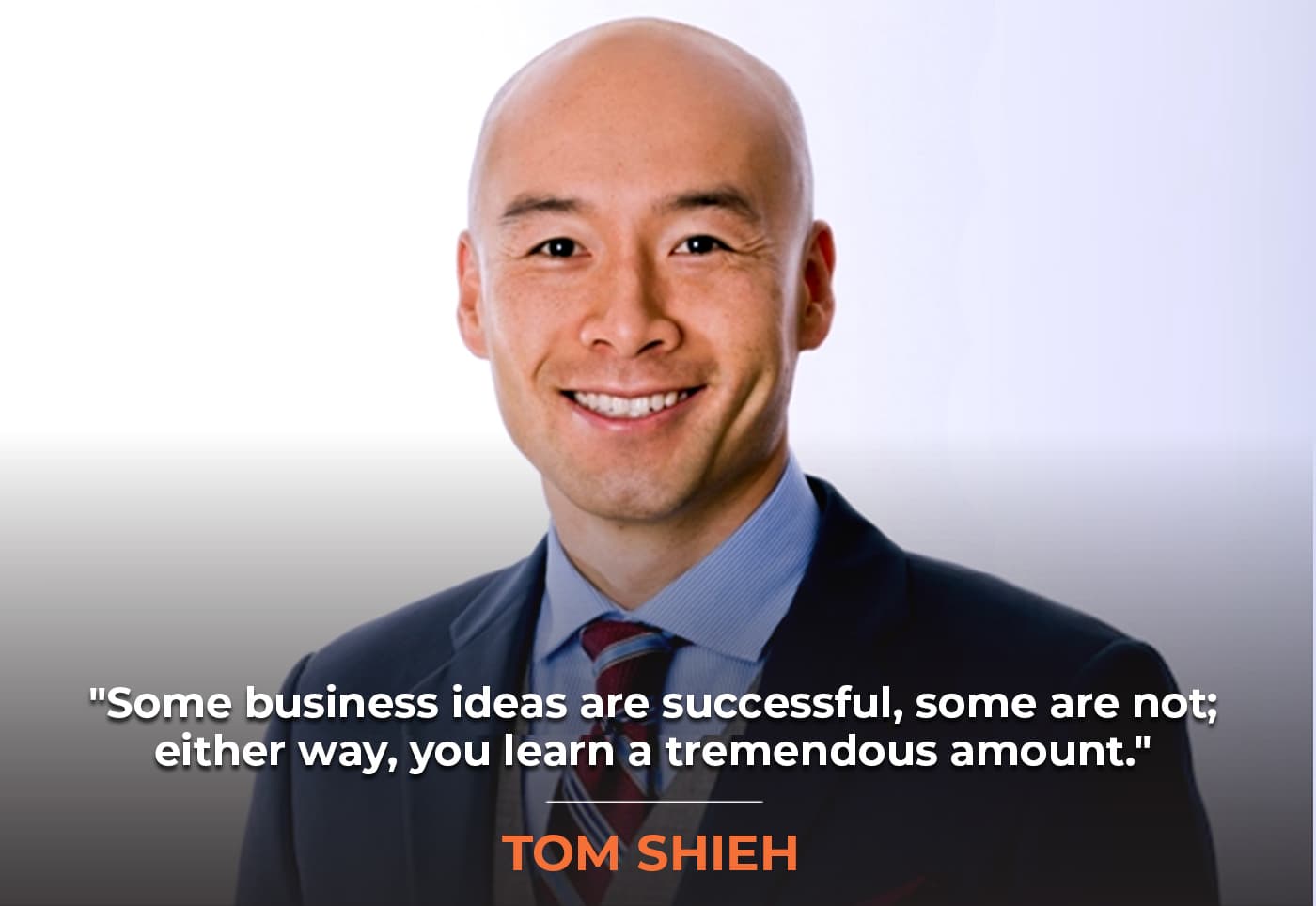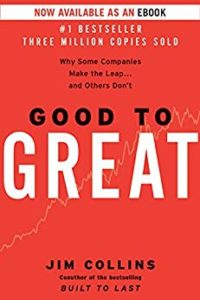Owning a portfolio of over 100 revenue-generating websites may sound impressive, but it can be more pain than it’s worth, especially if you put your trust in the wrong partners. There are so many details, financing options, manageability, scalability, performance metrics, valuation, negotiation and due diligence. Googling for the answers is not going to cut it. Doing adequate or even deep due diligence is the linchpin. My guest for this episode knows that better than anyone. At one point, Tom Shieh owned a portfolio of over 100 websites. He was making bank so much in fact that he was able to travel the world in Tony Robbins Elite Platinum Partnership, which is a six-figure investment per year. That’s where I first met Tom, by the way. Since then, Tom has lost nearly all of those 100 websites in an elaborate swindle.
These days, Tom owns and operates Crimcheck, a company that does criminal background checks of potential hires and potential business partners. If you ever plan on building a portfolio of multiple websites, buying a business or website, going into business with anyone or selling your business for that matter, this episode is a must read. If all you get out of this episode is Tom’s due diligence checklist, you will save yourself a fortune.

Transcript
Tom, it’s so great to have you on the show.
Thank you. It’s great to be on the show.
Let’s share first of all how we met because we’re both fans of Tony Robbins. Tony may not be for everybody but he’s for us. We’ve had some amazing life-changing experiences because of him, his events and his mastermind program that we were both part of. Why don’t you share from your perspective a bit of the back story?
I have done a number of different business ventures and one of my business partners, it took him about a year and a half of convincing to get me to attend a Tony Robbins’ event. At that time, my response was, “I’m a naturally driven guy. I don’t need any more motivation. If I wanted more motivation, I will just read a book or watch some YouTube videos.” He’s like, “No, you’ve got to go and check it out.” It was the latter part of 2011 and I didn’t know that I had to get there early. Everybody got there lined up giving me high-fives and hugs and I was like, “What is this cult-like group?” I went to that UPW in LA for my first event, Unleash the Power Within, and the energy was magnetic. It was unlike any concert or any event, particularly any business event that I’d had been to. I was literally two rows from the very back because I got there so late.
During a break, I snuck out to the front to see the different people because I could sense the energy was different. I wanted to hang out there and then I went to the back table and I’m like, “What are those different options?” They shared with me different programs they had, one of which was the Platinum Partnership Group, which is his elite group. It took a little bit of thinking but I realized ultimately pretty quickly that’s what I wanted to do. That’s where you and I met, through the Platinum Partnership Program, which is a one-year journey of deep discovery with Tony at some private event, along with his other public events as well. You and I had some conversation. We hit it off and we had similar interests and great discussions. Even in areas of India, I remember conversations with you all over the place, all around the world. It’s been great.
I haven’t been to a Tony event since 2013. Have you been going regularly to anything?
If you're not choosing what you love and love what you choose, that’s on you. Share on XI haven’t gone to a Tony event myself for the last three years. It’s on my list for 2019. I would like to take it back for an event. The last three years, I’ve been very focused on integrating and taking a lot of what I’ve learned from him and others and putting it into practice.
I took almost three years off to do Platinum Partnership for three years from 2010 to 2013. It was exhausting, going somewhere every month at a public event of his like Date with Destiny or Business Mastery. I actually spoke at Business Mastery twice in 2011 and 2013. I was going to all these different public events of his and for exclusive events that are just for Platinum Partners each year. It’s hard to get time to implement anything when you’re hopping off and on planes all the time.
You become a seminar junkie. It could be definitely highly addicting in terms of the transformation and the energy that takes place. I think to fully utilize that strategy or that experience, it’s best to have some time to implement.
That’s what you’ve been doing for the last few years was implementing?
Yes. I’ve been working diligently and putting some effort into what was previously just theories.
Are you reaping the rewards from that?

Yes. We’ve been growing business steadily. I’m falling more and more in love with our organization, the company, the team members and the clients that we serve. It sounds a little bit cheesy but I get excited in terms of working with our team members and in serving our clients. I’m having a greater appreciation for it.
Many people are working in jobs they hate or they dislike. You find joy in it sounds like, as do I.
If you think about it, we spend eight, ten, twelve hours a day working in terms of our business or our jobs. If you’re not going to enjoy, then that’s on you. If you’re not choosing what you love and love what you choose, that’s on you.
Hopefully, you’re not working twelve hours a day. Are you working that many hours?
It depends. I don’t look at it as hours. I look at it as outcome achieved. I do have three young children. I’m happily married and I enjoy working out and enjoying work-life balance. I’m not necessarily working twelve hours a day but when we have projects or there are certain things that need to be done, I’m not against working twelve to sixteen hours to reach an outcome.
Let’s talk a little bit about what makes your business model and your marketing unique. You’re doing some pretty cool things and interesting enough that you are able to pull together a mastermind of some cool internet marketers, business owners and you ran that for a period of time. Sadly, I found out about it right when you were wrapping it up. Let’s talk a bit about your business model. You don’t just have one business or one website that you operate. You have multiple websites that are across different verticals and different kinds of revenue streams. I know you have one primary but you had your hands in a lot of different pies, at least when I first met you. You were running a number of different websites. Could you elaborate on that?
Some business ideas are successful, some are not; either way, you learn a tremendous amount. Share on XI’ll take you on a little journey of a story of what’s transpired in my life in the last few years. I think it will give you greater context for some of the other things that we’ll discuss and share about. I went to school. I did what a good typical Asian child would do. I went and got my college degree. I got a graduate degree and then shortly after, I went to IBM and worked as a software developer. I worked there for about six years and then ventured out as an entrepreneur because I felt it was a real calling. I remember telling my wife at that time I feel like a caged lion. There’s something within my heart and there’s something within the gifts that God’s given to me that I wanted to explore and expand. I didn’t feel that I was fully utilizing that.
I remember clearly telling her that I’d rather be a skinny lion enjoying the thrill of chase than behind bars and being fed three meals a day. Not to say that being an employee is bad but that’s the state of which I was feeling at that time. When my wife was eight months pregnant with our first child, I decided to leave IBM. It wasn’t the smartest, most logical choice and my managers at IBM reminded me quickly that, “Tom, are you sure this is what you want to do?” I confirmed and I left. That was the beginning of my entrepreneur journey back in 2004. I did a variety of different businesses. I started off primarily focusing online. Some of the business ideas were successful, but some of them were not successful. Either way, I learned a tremendous amount.
One of the things that I learned was that it was much easier taking something that initially had some momentum than it was to start from scratch. I went to sell one of my businesses and then later realize that, “Perhaps instead of selling, let me flip the tables around. What if I focused on acquisition?” I started looking and working with brokers nationwide, identifying different business opportunities that I could acquire. Primarily looking at businesses that had at least a five-year trajectory, a positive cashflow and growing in terms of their niche in the industry. Over the course of about five years, I made about twelve to thirteen business acquisitions. At one point, I had well over 100 different websites ranging from Forex software to digital products to our own line of coffee. I love Boba tea or bubble tea. We had a Boba tea distribution business. We had network at daycare sites, different various AdSense sites. We had a large DVD distribution business.
I felt like everything was going pretty well. Then this is where the story takes a turn. About a few years ago, I had partnered with somebody that I thought I could trust. He had at that time expressed to me that he was running a successful hedge fund or a private equity fund and had all these raving reviews from other investors that were well-networked. He stated that he had hundreds of real estate properties. After initially investing with him a little bit, we decided to become 50/50 partners in terms of our involvement in that fund. Two years into it, I realized that he was running a Ponzi-like scheme. He’s been charged by the SEC.
A few years back, I literally lost everything. When you go to the heights of “success” or what our society in this world considers this success, only to have that crumbling down that quickly. It causes you to do some soul searching and discovery of who you are and what you’re about, what your plan is, what your purpose is in this world and ask some soul-searching questions. I’ve been on a journey myself for the last few years. In doing that, one of my core businesses that I had acquired that I managed to be able to pull out from that collapse was a company called Crimcheck. We’ve been growing it ever since for the last few years steadily. We’ve got a fantastic team. I’m more excited about the future than I’ve ever been.
It’s painful what you went through. I’m sorry to hear that happened to you. I think I know who you’re talking about. A guy based in Portland, I think?
Yeah, he’s in the Pacific Northwest up in Washington.

You met him through Platinum Partnership, right?
Yeah, I knew him for about four years. It was through that Platinum Partnership Program that he was a part of as well. He was also involved with other circles that were pretty well-established. There’s a high trust factor. Looking back, I’ve beaten myself up. I’ve blamed myself. I’ve looked at it. I’ve terrorized myself, at nights waking up with cold sweats, not being able to sleep and seeing my hand shake, having little panic attacks at random times of the day from what’s transpired. You see it clearly now but at that time, oftentimes when you have high trust, these types of things can happen.
I know who we’re talking about. I thought he’s a nice guy. Thankfully I never ended up investing with him. He had an interesting business model he was sharing with me. He’d buy rollups of hundreds of houses at a time or whatever. When you buy houses in bulk, you can get them for $10,000, $20,000, $30,000. It’s crazy. I was like, “How’s that work? You’ve got to tell me more.” I’m glad he didn’t sell me. I was busy with other things at the time. You had to be a caveat emptor, buyer beware. You go into high-level masterminds. There was another one that I was in that the guy actually is in prison, Louis Petrossi. He spoke and he was so eloquent and he had such a seemingly great advice. I wanted to have him on my other podcast, the one that’s all about upleveling your life, the Get Yourself Optimized podcast. Thankfully, I never did because now Louis is in prison. What a turnaround, I’m so glad that I didn’t get snickered any more than I did. I went in trusting the community and there are sharks everywhere. It doesn’t matter what group it is, it could be an Ashram. You trust nobody unless they’ve proven themselves. Even then you’ve got to get validation and verification.
That’s definitely a key takeaway is to be able to make sure you do the proper due diligence. It doesn’t matter if they’re the speaker or they’re promoted. Oftentimes, they can be sincere but they can also be sincerely wrong.
They can be sharks who have a Ponzi scheme or they’re luring you into their trap.
Oftentimes people can be sincere, but they can also be sincerely wrong. Share on XIn fact, there were a couple of other experiences from that same group with different people just to further elaborate that point.
I’ve got taken as well. I ended up signing up with this automated trading platform. I lost $50,000 with him. I know this is a little sidetrack, but I do appreciate you being so open and vulnerable with us on this podcast to share what you went through. You can share some lessons and some key takeaways that somebody who may end up going into business with somebody else can avoid that kind of pain because of something that you shared in this episode.
I think that’s the only way is to be raw and transparent and honest. It gives context to some of the other things that I shared because it comes from a different place. Until a man has faced and overcome a great failure or great hardship, a lot of the things that he or she feels, sometimes it may be theory. It’s not until you go through that pain in that journey that you realize how much more you appreciate the things that you’re working on and/or the things you’re working towards and why certain things work the way they work.
There’s an expression, “All growth happens outside of your comfort zone.” The challenges are where your mettle is tested and where you become the person that you’re meant to be. These are all gifts at the end of the day.
It’s like the refiners’ fire. That’s how precious metals are purified. You’ve got to heat up the elements and burn off the dross, the impurities. In the moment, it’s not pleasurable for sure but I am at a place in my life where I look back and I know you said, “I’m sorry. It’s unfortunate,” and it is. That’s the fact of the matter but at the same time, I do look at it and I’m tremendously grateful for having the experience because it’s developed within me. I called it a holy rage in a sustainable way, not rage against others. The rage in terms of this utmost passion and desire to be able to take care of people, take care of family and myself. The people lost tens of millions of dollars through this whole ordeal. It’s sad but also I know there’s a gift in it. I’m constantly every day focused on that gift and the ability to create.

You’ve got fire in your belly. Let’s talk about your current major focus right now, Crimcheck. It’s not your only focus business-wise, but it’s one of your primary businesses. What would you say you spend percentage-wise on that site versus your other stuff?
I have other businesses that I’m working on. For example, we just acquired an eCommerce company a few months ago. I would say 85% of my time is spent on Crimcheck. We have a team of 50 in the offices in Ohio and then another ten to fifteen remotely. We’ve got a great team and great staff and tons of leverage. I often look at it to see it’s these tiny levers and small hinges that move big doors. I try to remind myself that when you have 50, 60, 70 people that are working towards a common goal, my ability to strategically align them and to focus their time, energy and efforts will far outweigh anything that I could do individually myself. I spend 85% of my core focus on that company and the majority of that is more in a visionary chief empowerment officer role.
Who’s doing the primary operations? Did you recruit a COO? Did you get a business partner? How do you step outside of the business enough that you can work on it instead of just in it all the time?
Crimcheck started back in 1991, so it’s been in operations for a while. I took over, I acquired the company a few years ago. When we made the acquisition, there was a great team in place. There were some people involved that weren’t quite a strategic fit long-term. We made some adjustments there. Then we looked to acquire other positions in people and personalities to be able to create the culture and a team dynamic that we were looking for. As we develop over time, some of these people have evolved and stepped up. I owe the growth to the executive team of our organization, along with each individual team members. I give them all the credit. We have a fantastic group. A group that consists of, particularly in the management roles, A-players. When you work with A-players, it’s night and day difference. Their ability to respond and react to ideas, implementations and executions is terrific.
Do you have the same team or a different team that’s helping you with your other businesses and websites?
I have other teams that I’m building. That’s the piece that always takes the most time I think. It’s like the book of Jim Collins, Good to Great, where he talks about getting the right people on that bus. That’s what we’re constantly working towards. Then having the discernment and wisdom to be able to make adjustments to make those changes in rosters over the course of time. What got us here isn’t necessarily going to take us to the next level. Sometimes that can be a stumbling block or a hindrance for people who are in organizations that are growing and they don’t want to rock the boat. They want to change certain things. It’s like what Steve Jobs said in his own book, “You have to sometimes cannibalize your own model, your own business because if you don’t do it and you don’t constantly stay sharp in what you’re doing, your competitors will definitely do that.” The industry changes so quickly that you put yourself at a disadvantage if you don’t.
If you yourself are not a great fit anymore, you need to sideline yourself. The CEO or founder who’s great at building $1 million business may not be very good at building a $10 million business. In other words, taking that $1 million to the $10 million.
Until a man has faced and overcome a great failure or great hardship, a lot of the things that he or she feels may sometimes be just theory. Share on XThat is a part of accountability that is being truthful with yourself, truthful with others and allowing others to be able to provide the input. You’re absolutely right. Sometimes the founder or the person that was previous in charges is not the best-suited and you need to be able to make some big shots and calls like that.
At some point, we all need to replace ourselves. There’s a point in time or revenue milestone where you’re going to have to say, “I don’t know how to do this part and I’m probably not the best fit for it.” It’s a rare person that can grow a company almost unlimited. How many folks can you think of who have been able to pull that off? Maybe Sergey Brin and Larry Page have been very successful, but I think more Sergey. Even he brought in a CEO at some point and then he stepped in as needed but that’s a rare bird. How often are you acquiring businesses or websites? Do you refer to them as websites or you refer to them as businesses? Some people are buying up websites and then there are people buying up businesses.
It’s a huge difference. Earlier in my years, they were websites, even like AdSense website I would consider as a business. Nowadays, I think I’ve become a little bit more refined in terms of what I consider a business because algorithms change and Google changes certain things. If you’re a one trick pony then the business value, which is often predicated on the predictability of future earnings, when you’re fully dependent on one income stream or one channel, you put yourself at risk. I’m looking at businesses nowadays. I mentioned in prior years, we’re more focused on websites but now it’s businesses. A business now has to have websites. Businesses now have to do some basic marketing. I’m looking at businesses that have those three main attributes that I look for, manageability, sustainability and scalability. I’ve got a list of a checklist and due diligence checklist of things that I review, literally over 100 different items that I look at and assess.
You have 100 items are in your due diligence checklist. Give us a few examples of things on your checklist.
I’ll preface it by saying that because I’ve looked at so many different businesses, I’ve evaluated so many prospectuses. These have been developed and built up over time. In fact, one of the more well-known business brokers, I remember a few years back, he admitted that when I first proposed all these different questions to him, he took all my questions and they started using that as standard templates for future prospectuses that he prepared. If I’m looking at inventory, it’s a digital product or it could be a physical product of under inventory then I’ll list things like how many SKUs, where are the SKUS located, how many suppliers and what’s the shelf-life, the customer distribution or do we have customer concentration.
If it’s a physical product, are they listing on Amazon? Are they on the Shopify? Is it on Etsy? A variety of different channels. For one little category, I’ll go through this entire checklist and give me an idea of what levers and what buttons to push and pull. When you’re looking at business, it’s a thinking sport. My previous business mentor, Keith Cunningham said, “Businesses is a thinking sport.” He equates it to getting in the cockpit of an airplane. Initially to the untrained eye, you go in there and you see all these dials, levers, buttons and knobs, you have no clue what it is. Once you’ve flown a few times, you understand the instruments, you understand the dials. You know that these questions that I have on my checklist and/or other things that I use for KPIs or metrics help tell the story of how the business is doing and what activities should be focused on.

I love Keith Cunningham. He’s so cool. He got this disarming style of presentation about him, the Southern drawl. He’s a great mentor. Are you still doing any of his programs or getting coached by him?
I did some private consulting for a year or two and then we did some other arrangements in a group setting with him. I have not in the last three years. I haven’t done anything much with Keith or any other event. There are a couple of other masterminds that I’ve been involved with but nothing with Keith or Tony.
Keith speaks at Tony’s Business Mastery events and some of his Platinum trips too. He did the two- day MBA at one of the Platinum trips. He did that one in Fiji.
I think they do it out in Europe as well.
Keith has his Board of Directors Program and several other programs, good stuff. He’s on my wish list of people to have on the Get Yourself Optimized. What do you think about brokerages, going to a business broker or a website broker to find a web-based business to acquire? Is that a model that you’re keen to do over and over again or is that something that you try and do internally?
It’s evolved over the years. When I first started in 2004, the industry was not as mature as it is. Nowadays, when you’re looking at business opportunities, a lot of times by the time that an average person is listed, it’s like the bottom of the list in terms of what people don’t want. A lot of these things are gobbled up initially that the better opportunities and deals are structured before. Sometimes brokers are involved or even if brokers are involved, they’re worked out because they know strategic buyers that could come in and buy it with cash and acquire it. I have mixed feelings working with brokers.
What got us here isn't necessarily going to take us to the next level. Share on XOn one hand, I’ll tell you the positive thing about working with business brokers. Most of them will have a professional approach to vet the business in terms of getting some of the financials. Ask some questions and do interviews so that they could prepare a prospectus typically around 15 to 30 pages that will give you a good outline and a summary of the business opportunities and areas of improvement. That’s very helpful if you’re a first-time buyer working with a business broker that you can have somebody help facilitate that, give you some ideas and questions of certain things that you may not even considered or asked for.
I personally prefer to work on business deals without business brokers. Number one, there isn’t the commission that’s involved. Number two is I would say on average, probably 80% of the deals that I’ve done in terms of acquisitions involves some level of creative financing. That could be either a seller financing or portion with cash up front and earn out, all earn out or strategically working on what works for the seller in terms of an exit. Many times when a broker is involved, what they’re looking to do is make it very concise break in terms of buyer and seller, so that they can get the terms and cash and then they could be paid their commission. When you have brokers involved, sometimes it’s hard to facilitate that conversation.
Their incentives and their motivations are not aligned with yours as the buyer. They want to do a deal so they can get paid even if the deal is ultimately bad for you. Some people are not that ethical and some people are mostly ethical but they’ve got that internal motivation that they can’t shut off. They’re trying to do good by you, but they’re also needing to pay their bills.
I don’t care so much the multiple that I’m paying for it in terms of how the sellers looking at it. I’m more concerned about my multiple. With a high level of confidence, what do I feel like this multiplies and the number of times the net income on an annual basis of what I would pay for the business? I’ve had deals. I’m thinking of one specifically where it should have gone through but the broker totally mismanaged the expectations. It was a bit frustrating. It would have been a win-win for the buyer and the seller but because the broker wanted to get a little bit more commission, he boosts things that didn’t necessarily need to be there.
Did that business get sold to another party or is it in the hands of the seller?
This specific broker that I’m think referring to, one is the seller has not sold as far as I’m aware of even though we made the offer and it looked like it was going through. That was one scenario. It did not get sold. The other one was that it eventually got sold. I had it under letter of intent and we were progressing. That was frustrating for me. In that scenario, I heard that it was sold for a cash value higher than what I had offered. If that’s the case, then kudos to the seller.

Brokerages are a mixed bag but they can add value. They put together the prospectus, they do some due diligence for you. That doesn’t mean you don’t have to do due diligence. You have to do plenty of due diligence. There are too many cases where a business gets sold by a broker or a transaction gets facilitated by a broker and the buyer ends up holding the bag with something that’s not so great. They should have done more due diligence in order to figure that out on their own. Any particular brokerages that you like? I’ve mentioned one that I’ve heard good things about. I have not used personally but I’ve heard good things about Quiet Light Brokerage. I did have Chuck Mullins on this podcast to talk about brokering, buying and selling of web-based businesses. He actually was not working for Quiet Light when I met him. He was buying and selling web-based businesses and he liked the folks at Quiet Light and eventually decided to join the team. Any particular brokerages you like?
I worked with a number of different brokerages and I had some good relationships with many of them. This is like picking your favorite child type of thing. I would definitely do a plus one for Quiet Light. Mark is a great guy. I remember having conversations with him before as well. I feel they handle things very professionally. They do a good job of vetting and I know that he truly cares, in terms of both the buyers and the sellers. Oftentimes, it’s a small community of people who were buying and selling businesses. I feel he does put in the effort to maintain that level of excellence and integrity.
If you’re not using brokers, what’s the source for opportunities? Are you cold calling based on clever Google searches and maybe even built your own internal tool to do some of these searches and scraping for contact details and all that?
I’ve got a number of different ways in terms of how I source different leads. One is because brokers that I’ve worked with in the past, I’m on their newsletter, so I see certain things. I’m involved in different mastermind groups and so sometimes I hear and sense and these news travel before it’s officially listed as well with some of these brokerages. I use BizBuySell, which oftentimes has people that are looking to sell different businesses as well. BizBuySell is the larger one. There are some other smaller business for sale websites as well but put an asterisk next to BizBuySell. There are a lot of people there that are inexperienced sellers that may not be providing you the right information and there are other times I’ve seen flat out people who are out to scam. You have to be cautious about that as well.
That happens on all the websites like Flippa and WebsiteBroker.com. Sharks are everywhere.
You’ve got to be mindful of that. What has given us the strategic advantages, I’ve got a person who is hunting for these deals. There are certain parameters I’ll provide them in terms of revenue, in terms of growth and type of industry. They will go and hunt, whether at trade shows or picking up the phone, calling and emailing. When it’s a third party that comes in and they are able to send a letter that I have approval from Chase in terms of our ability to close, it changes the conversation and dynamic. If they’re interested or they’re in that right timeframe of looking to sell, oftentimes, we will first look at opportunities that way.
In the quest of revenue and numbers, sometimes we can be disillusioned in terms of what's actually more important. Share on XI’m sure there’s a secret sauce that you won’t share and you shouldn’t but I’ll give you an unrelated example of that secret sauce. Let’s say that you were buying apartment buildings or individual condos, you could contact the landlords of places that can’t seem to move. They’re not able to get the place rented, it keeps showing up again and again in the for-rent listings in the newspaper or on Craigslist and you call them up. You say, “I see you’ve got a property that you’re looking to rent.” They’re like, “Yes, we do.” “I’m not interested in renting it, but I would be interested in buying it if you consider that. I don’t know how long it’s been on the market for rent or whatever but you’re probably getting sick of having to find tenants and manage the tenant relationships and whatever. What if I took that pain off of your plate and I handle that?” That’s a very clever strategy for finding great deals on properties. The property you want to buy in real estate is what Bob Allen calls the Don’t Wanters. The seller or the person who is potentially willing to sell doesn’t want the property. They’re going through a divorce or having a hard time financially. They have medical issues. They’re getting older or whatever and they don’t want the place. The best websites, best online businesses you can buy are the Don’t Wanters.
Especially if you could strategically structure it where it could be a win-win. This is not me saying it to be flowery but I truly sincerely mean it. When I look at an acquisition, I look at it to create value on both sides. I want the seller to feel their needs are met in terms of their transaction of what they were looking for and for us as well to make sure we can profit and benefit.
For somebody thinking, “That’s all fine for you. You’ve got money,” it takes money to make money or whatever but you don’t have to dip into your life savings to buy an online business. You can use OPM, Other People’s Money. Are you using other people’s money or are you mostly using your own?
Before I got involved with the fund, I had zero investors in funding in my twelve different acquisitions. 80% of my deals have been structured with some level of creative financing. I would say 15% to 20% of the deals were all cash. When I pay all cash, it’s negotiated. It’s at least 20% discount. A 10% discount for cash, sellers would do that pretty easily. 20%, most of the times you could strategically arranged to make happen as a rule of thumb. You can be creative especially to the point of what you were mentioning in terms of when people are in a position where they don’t want to grow the business. They’re not in the right mental state, whether it’s a divorce or whether it’s a health issue. Whether the partners are not seeing eye-to-eye on certain things or they’ve taken it to a certain level and there’s something that they want to do and they feel they’re not giving the right attention and effort to the business. You can have much more opportunity at that time to be able to structure something that makes sense. I’ve structured deals that people would think are impossible but they’re not. If you genuinely understand and care for the person on the other side, you can strategically and creatively, collaboratively work out a situation or a scenario that works.
The first most important thing I think and getting to that point is to get their world. Ephraim Olschewski, I’ve had him on this show and on the Get Yourself Optimized. He’s described to me that you’ve got to climb this invisible wall of context between you and the other person, the person you’re in conflict with or you’re negotiating with whatever. Climb that wall and get into their world, get on the other side and see what the world looks like for them. Walk in their shoes, look through their eyes and see what their motivators are, what their pain points are, what’s driving them, what they’re aspiring towards and all that.
If you get their world, that’s going to help you in building that relatedness between you and the other person but it only counts if the other person feels gotten by you, not that you get them. It doesn’t count unless they feel gotten. Make sure that person feels gotten and that’s going to help you create that win-win of deal. Let’s say that you get to a point where you’re managing another 100 websites or web-based businesses or maybe even you 10X that and you go to a thousand. How do you scale it to something like that? You’ve tasted that before having gotten to 100 websites, which is far more than most people will have gotten to. How do you 10x that?

The rules of the game have changed for me or in terms of the desire. Initially it was based on revenue, number of businesses and number of websites. Those factors aren’t as important to me now because I think in the quest of that sometimes we can be disillusioned in terms of what’s actually more important. One sentence to summarize what I’m looking to do or what my purpose in terms of career and business is, it’s to build an ecosystem, synergistic businesses that do social good. To me, it’s not so much about 100 or 1,000. Sometimes I feel like the thought of scaling itself can be flawed if not approached the right way. Growth is great. Having progress and growth is a key to feeling a sense of achievement and a sense of fulfillment.
In my earlier years, I was wanting things that grow by numbers in terms of volume and number of employees. It was these metrics that didn’t mean much. It reminds me of the analogy, you want growth but not all growth is equal growth, fast and big growth. Like cancer is abnormal growth but it’s not a sustainable, healthy growth. For me, what I’m looking for is healthier and sustainable growth. That’s often reminded in our email signature. We hit the Inc. 500 for fastest growing companies in 2018 and it looks like we’ll do that again in 2019. Every time I see that, I remind myself, “It’s not about fastest growth, it’s about sustainable growth. Sustainable in terms of culture, industry and profitability.”
When you ask would I want to 10x what I previously did, it doesn’t attract me from that numbers perspective. What attracts me more is the impact. Can we do greater good in terms of the people that I employ? It gives me tremendous joy to see some of the people in our organization get married and buy houses. Seeing their growth and their ability to take care of their family in that way lights me up. Those are the things that I strive for. I have numbers and objectives. It’s not like I don’t have numbers or objectives. We have key metrics, KPIs and annual goals that we’re looking at. If I didn’t have 100 websites ever again, I would be as happy as I am.
You don’t want to keep accumulating something without fulfilling, meaningful end game. It’s not about the person with the biggest wins. It’s about having value creation and legacy that you’ve created in the world. Business is a spiritual game.
It’s a tremendous platform. In commerce, it’s where different cultures, different needs, different personalities meet and you have such a great playing field to be able to truly make an impact. In our different businesses, there are different things that we look to do in those businesses that I would also measure impact by. Whether it’s sponsoring a child through World Vision or Compassion International for every employee that we have on board and working with orphanages. With Crimcheck, we do background screening so on one hand, we look to provide accurate results for those applicants that may have a criminal record. Oftentimes, people view us as the gatekeeper to keeping the “bad people” out.
At the same time, I sit on the advisory board for Defy Ventures, which is a nonprofit national organization that is committed to help transform our country in terms of prison reform and how we treat the inmates. The education and the opportunities that we provide them in the prisons and also when they leave the prison. There’s a bit of education there as well. There’s effort that I do personally in my spare time, along with Crimcheck contributes financially to those what we call entrepreneurs in training, within the prison. It’s things like that you may look at and say, “We’re just doing background checks but it’s so much more.” It’s such a tremendous channel to have a voice and be able to play, educate and have dialogue and converse with true people and clients and also a world of challenges.
Having progress and growth is key to feeling a sense of achievement and a sense of fulfillment. Share on XDefy is an awesome organization. I’m happy to hear that you’re on their board and you’re helping them to do good in the world. I first heard of them from Rick Klau, who is one of the founders of FeedBurner, which got acquired by Google and he’s part of Google Ventures. He does some stuff with Defy. Any and every business should be doing something to make a difference out there besides just taking care of the staff. I donated an audit of full scale, $35,000 SEO audit for Charitybuzz to auction off for the benefit of Impact Network, which builds and operates schools in Zambia. I’m on their board. $20,000 was what the audit went for in one year and then $15,000 another year. All that went straight to build schools and operate them.
That’s what jazzes me and juices me up. In my earlier years as an entrepreneur, it was about the big flashy numbers. I hit six figures, seven figures, eight figures. Particularly as going through what I’ve gone through as well, where you know that a man’s self-worth does not equate to his net worth. Those things are tied together. Oftentimes, I’ve had a more refined perspective in terms of what business is about. It excites me to hear the things that you’ve done in terms of offering your gifts and abilities to make an impact. It’s these things that we don’t put on our resume necessarily. People don’t necessarily know what’s for or know you for but that amount of money that goes to schools. Each child that’s educated, it’s like one family that’s impacted and changed.
Change the world one child at a time. Thank you so much, Tom. If somebody wanted to get a background check for somebody they’re looking to hire, what’s the website address?
If somebody wanted to work with you, maybe get coached by you, is that something that you offer?

I don’t offer coaching because I realized that the time that I would spend in coaching, if I were to go and implement and do myself. With that said, I do actually coach and mentor a number of different people. Somebody from Africa actually messaged me. I’ve had people from Singapore and different parts of Asia, in Taiwan, also in China and Japan. Even across different states, I will hear different things or read certain things that we have common discussions through different events, whether it’s podcasts or things that they’ve read online of articles that I’ve written. If they’re interested, they can look me up on Facebook, Tom Shieh, and then send me a message. I actually allocate time weekly specifically for doing certain things like that, being able to serve others. I know where I am because I stay on the giants of people who believed in me and provided me some advice, coaching, counseling or very timely knowledge at certain times of my life. I set aside a portion of my week to look for those opportunities to be able to help people.
Thank you, Tom. Thank you to the audience. Take some action and create something amazing out there.
Important Links:
- BizBuySell
- Flippa
- WebsiteBroker.com
- Ephraim Olschewski – Previous episode Marketing Speak
- Ephraim Olschewski on Get Yourself Optimized
- Defy Ventures
- Google Ventures
- Charitybuzz
- Impact Network
- www.Crimcheck.net
- Tom Shieh – Facebook
Your Checklist of Actions to Take
☑ Create a detailed checklist on building a portfolio of revenue-generating websites. Make sure to include vital factors such as financing options, manageability, scalability, performance metrics, valuation, negotiation, and due diligence.
☑ Develop a work culture that exemplifies team dynamics. Focus more on the time, energy, and effort my employees provide towards a common goal.
☑ In acquiring businesses, look for companies that have these three main attributes – manageability, sustainability, and scalability. Have a checklist of things I need to review.
☑ Build a website for my business and implement basic marketing so I can manage, sustain, and scale my company.
☑ Diversify my income stream by investing in other areas. Always remember the adage, “don’t put all your eggs in one basket.”
☑ Get involved in different mastermind groups to get the word out on some listing. News travels fast, and sometimes they circulate around these groups before they are officially listed with some brokerages.
☑ Provide value on both the seller and the buyer’s sides during acquisition. Make sure that the seller’s needs are also met in terms of what they’re looking for and that both parties benefit.
☑ Be a part of an ecosystem of synergistic businesses that do social good. Having progress and growth is the key to feel a sense of achievement and fulfillment.
☑ Recognize that a man’s self-worth does not equate to his net worth. It is great to offer my gifts and abilities to make an impact.
☑ Visit www.Crimcheck.net for background checks on potential business partners and people I’m looking to hire.
About Tom Shieh

Tom is a successful serial entrepreneur. He focuses on the strategic structuring of acquisition, development, and growth of profitable businesses.







Leave a Reply